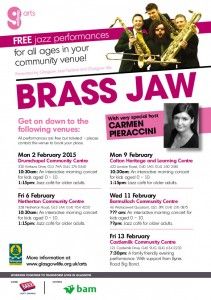At SURF’s Bridging Culture and Regeneration Seminar, a key point of discussion concerned the ‘invisible barriers’ that discourage people from poorer city neighbourhoods to take part in local arts and culture activities. In this feature, seminar participant Jon Pope of Glasgow’s culture and sport agency Glasgow Life elaborates on the challenges arts bodies face to engage fresh audiences, and outlines the ‘small steps’ that can be taken to remove barriers.
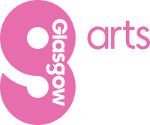
Glasgow Arts is a sub-brand of Glasgow Life
As an Arts Producer for Glasgow Life, you should repeatedly ask yourself:
- “What does success look like?”
- “How would I know it if I saw it?”
If the answer to the first question is: groups of happy people enjoying a range of experiences they might not have previously encountered, without fear of appearing inferior or stupid, well, yes, I hope I might recognise that.
Building on an Unforgettable Summer
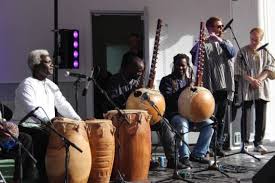
Scotland’s Ha Orchestra were among the diverse musicians performing at the Commonwealth Games Cultural Programme
Last year, as the population of Glasgow swelled by a third overnight and we all sizzled in the unaccustomed heat, the atmosphere in the city was tremendous.
We now know that over 500,000 people attended the myriad free events of the Commonwealth Games Cultural Programme. In particular, our Finishing Line events for the Queen’s Baton Relay attracted capacity attendances of 5000 at three parks across the city. There was music from a diverse range of groups including the Ha Orchestra and Salsa Celtica, and walkabout performances from Mischief La Bas and Fish and Game.
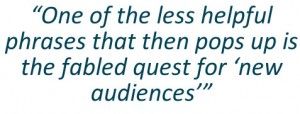 Three great days out, with some experiences people might not have come across before.
Three great days out, with some experiences people might not have come across before.
So our challenge has become; can we keep these people engaged and translate their enthusiasm into continuing attendance and participation at other events?
Or, to pick up a theme familiar to SURF members and quote one of the organisation’s founding principles:
“The people who are the intended beneficiaries of any regeneration effort must be meaningfully involved in the process if it is to be successful in planning, implementation and maintenance”
Cultural Barriers
One of the less helpful phrases that then pops up is the fabled quest for ‘new audiences’. Personally, I think this has associations with zealotry that are profoundly questionable.
So I was delighted that in 2014 Glasgow Life and the Glasgow Centre for Population Health commissioned the Social Marketing Gateway to complete a study with the catchy title ‘Sport and Cultural Participation Community Consultation’. So far, so dull, you might think.
This well-written report has, however, adopted a common sense approach and usefully recruited their respondents from neighbourhoods which typically have low participation in these pursuits.
For example; one of the well known barriers to people visiting or attending remains:
“A perception that the venues are not accessible”
Whatever strides we may believe we have taken in the cultural offer and its perceived benefits, we clearly seem to have a great deal further to go.
Arts Participation is a Spectrum
However, the study also encourages us to consider participation and engagement in a less binary way.
We need to understand that people cannot just:
“be clearly divided into liking/disliking and visiting/not visiting”
It is too simplistic, as is the premise that there are ‘new audiences’ that we simply have to entice or marshal to the ‘other side’. These are customers, some of whom (for a whole range and variety of reasons) have decided they have other choices.
Our potential audiences therefore range from the most engaged and positive to the most detached and negative. So we need to adopt a far more subtle migratory approach to communicating with the less engaged, often by raising the profile of city centre events and venues within local communities and demonstrating their approachability.
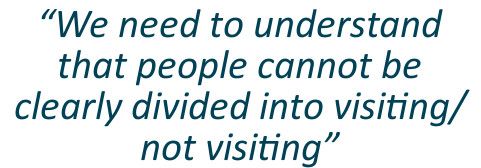
Accessible Jazz, Comedy and Modern Art
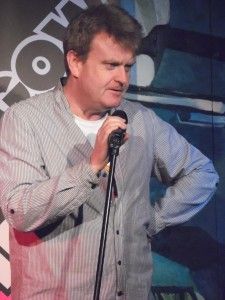
Raymond Mearns and other successful comedians will be involved in ‘On Your Doorstep’ events
So I’m obviously delighted to report that, in partnership with the Glasgow Jazz Festival, we had a brilliant family friendly night at Castlemilk Community Centre last month. Kids bouncing about down the front, couples up dancing, cups of tea, bags of chat and two brilliant bands – Brass Jaw and the Byres Road Big Band.
Later this month, the Glasgow International Comedy Festival will be ‘On Your Doorstep’ in three community centres across the city with workshops and gigs aimed at interacting with older people to encourage them to Get Creative.
Plans are well developed for the Turner Prize at Tramway in October to be as ‘approachable’ as is possible. This is where the ‘migratory’ approach to audience development will really need to come into its own.
Small steps, you might think, but important ones.
